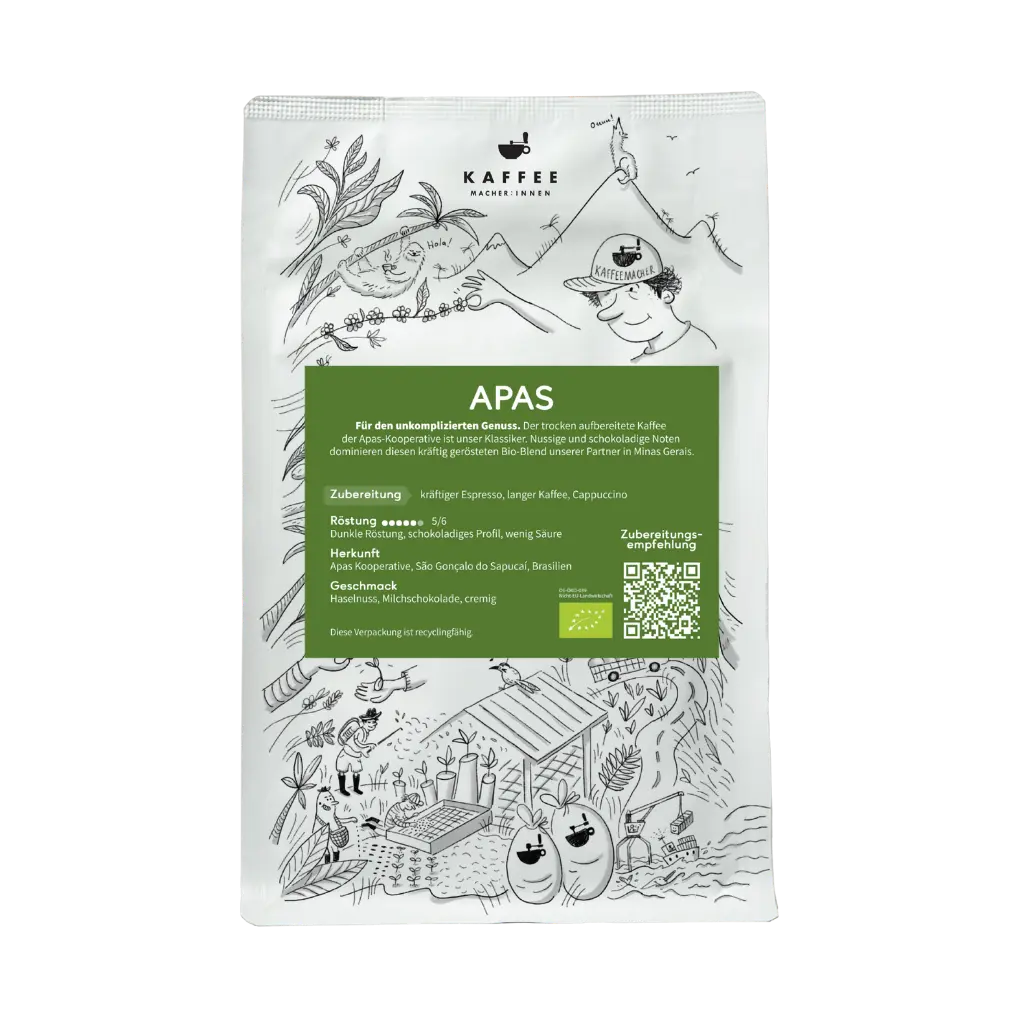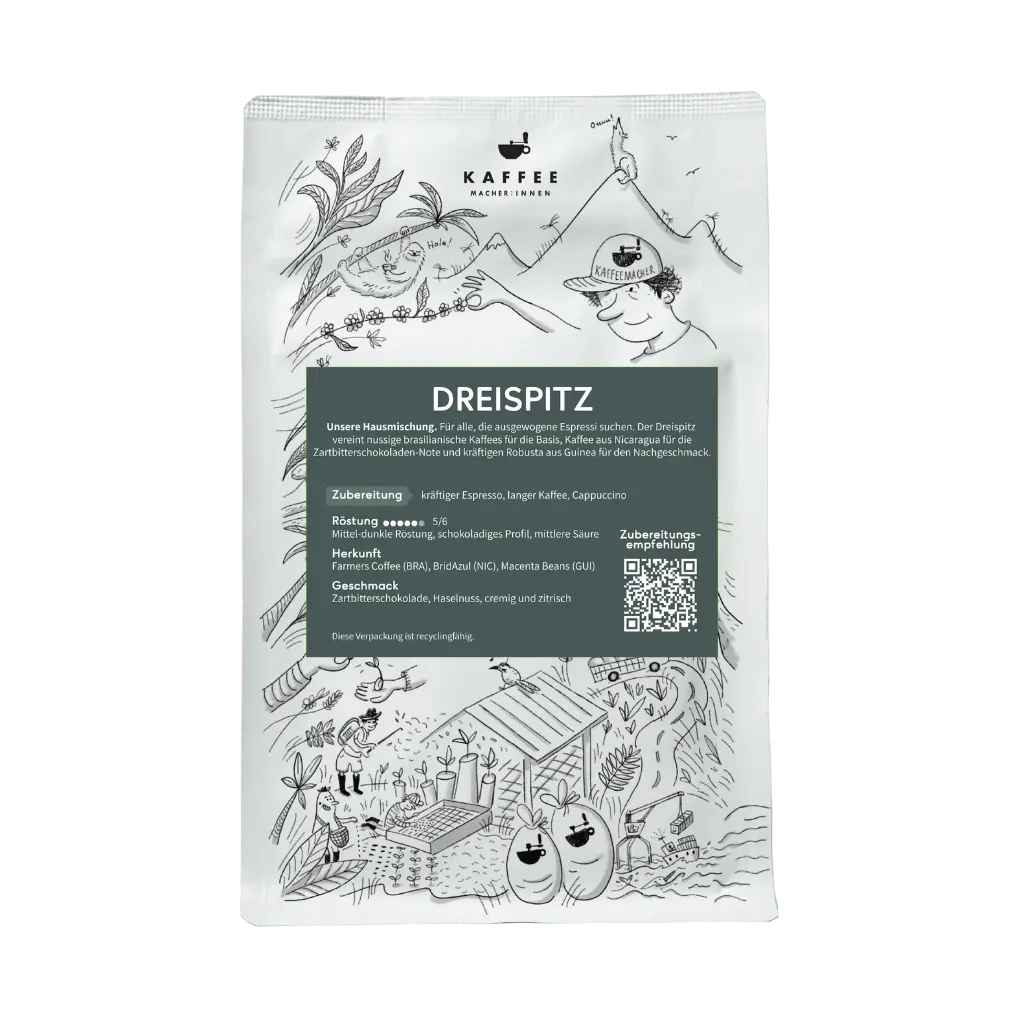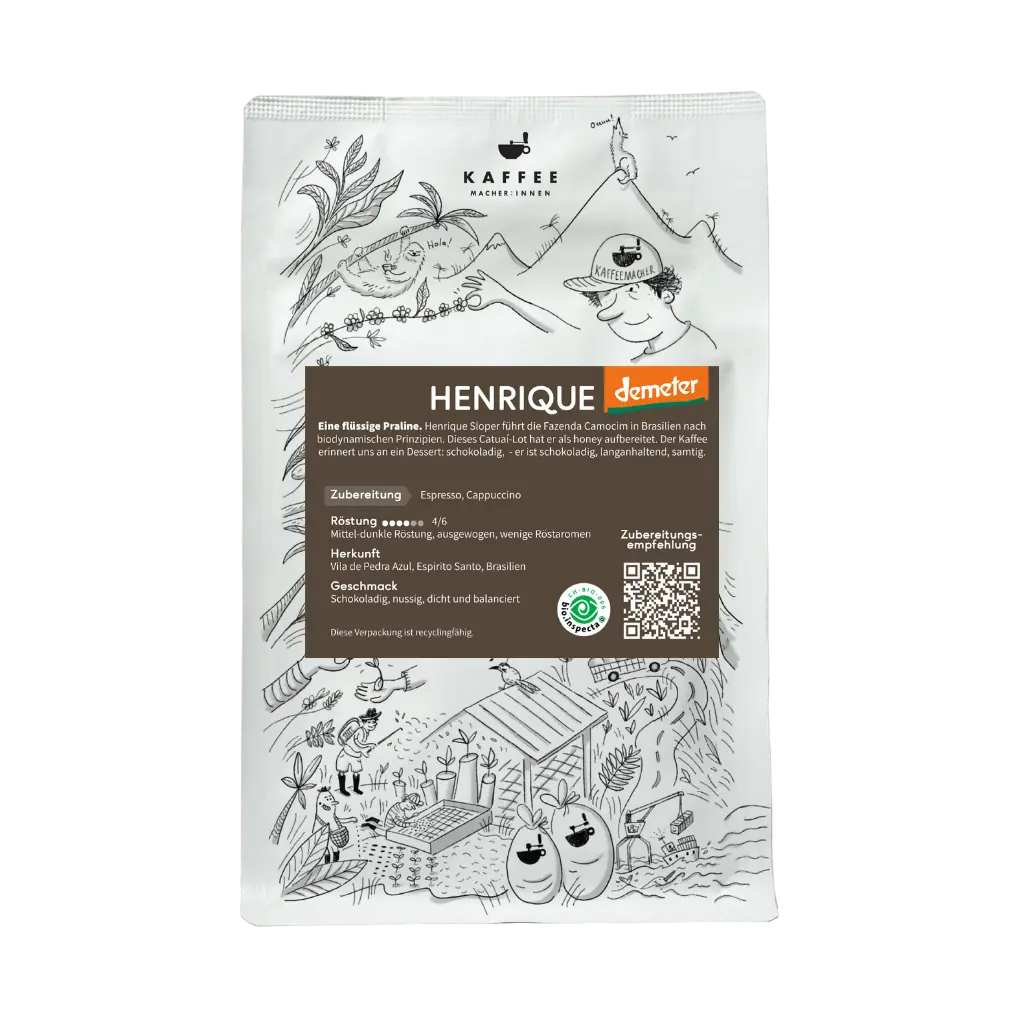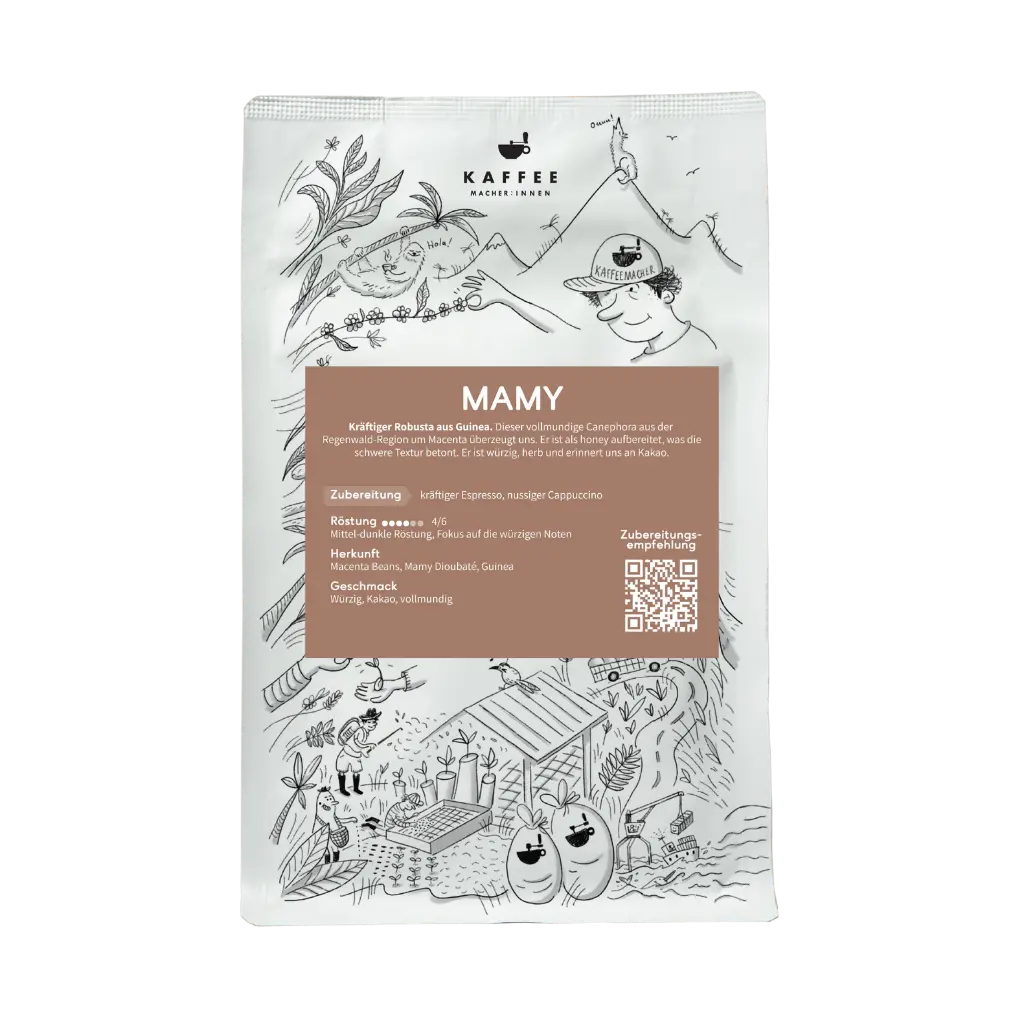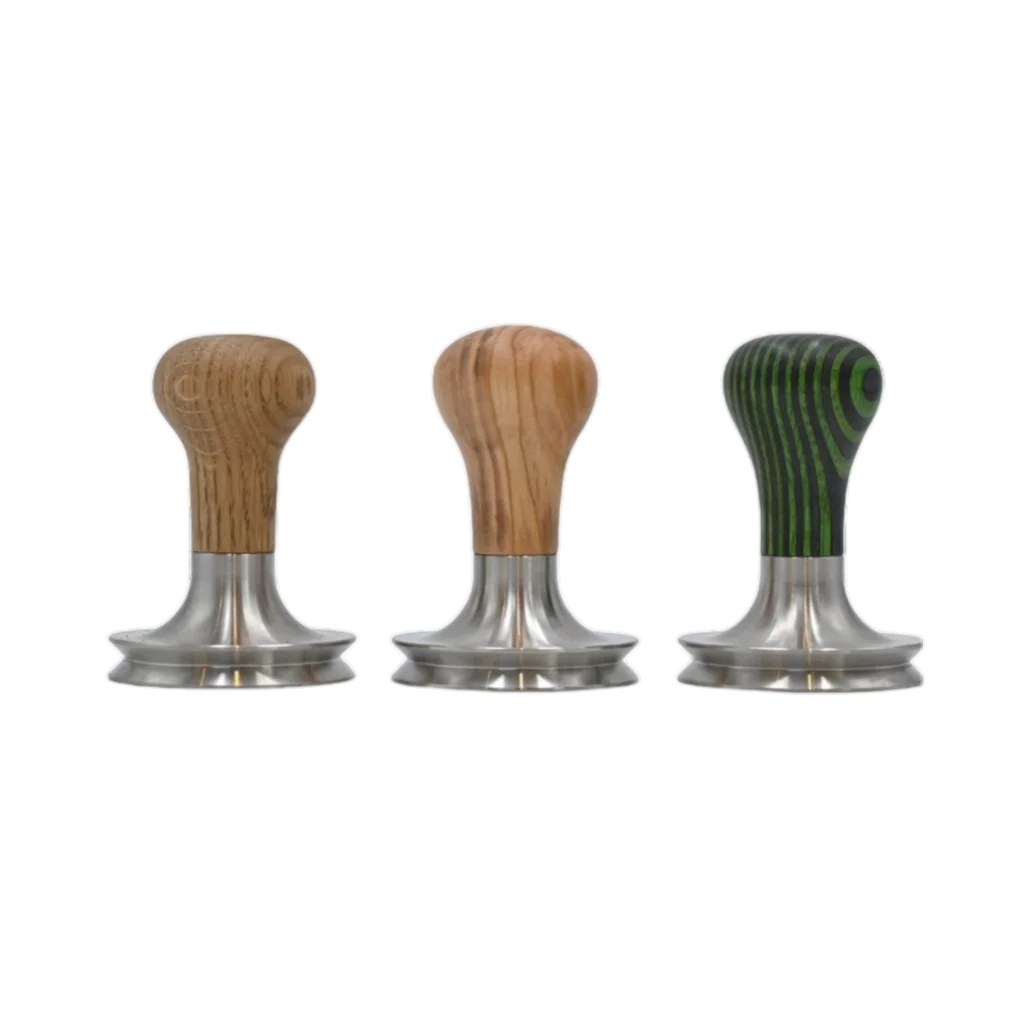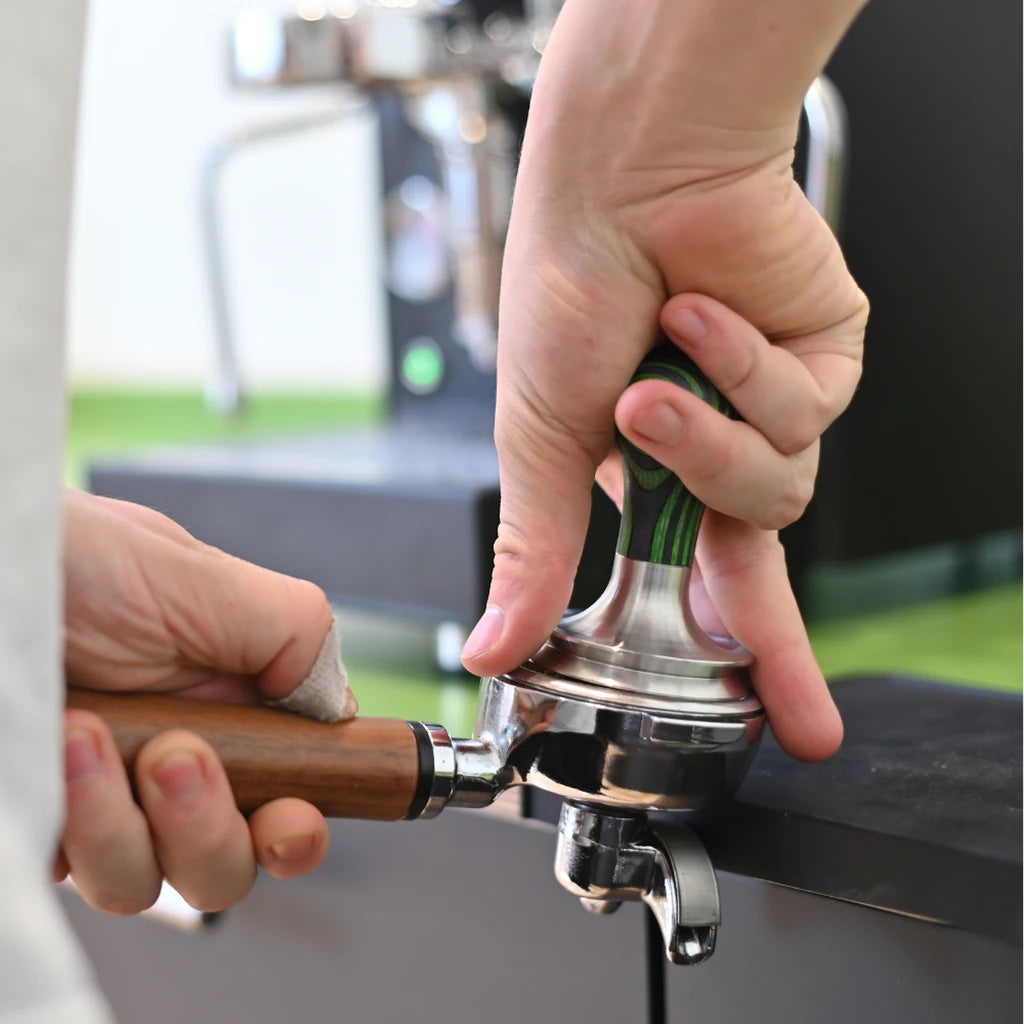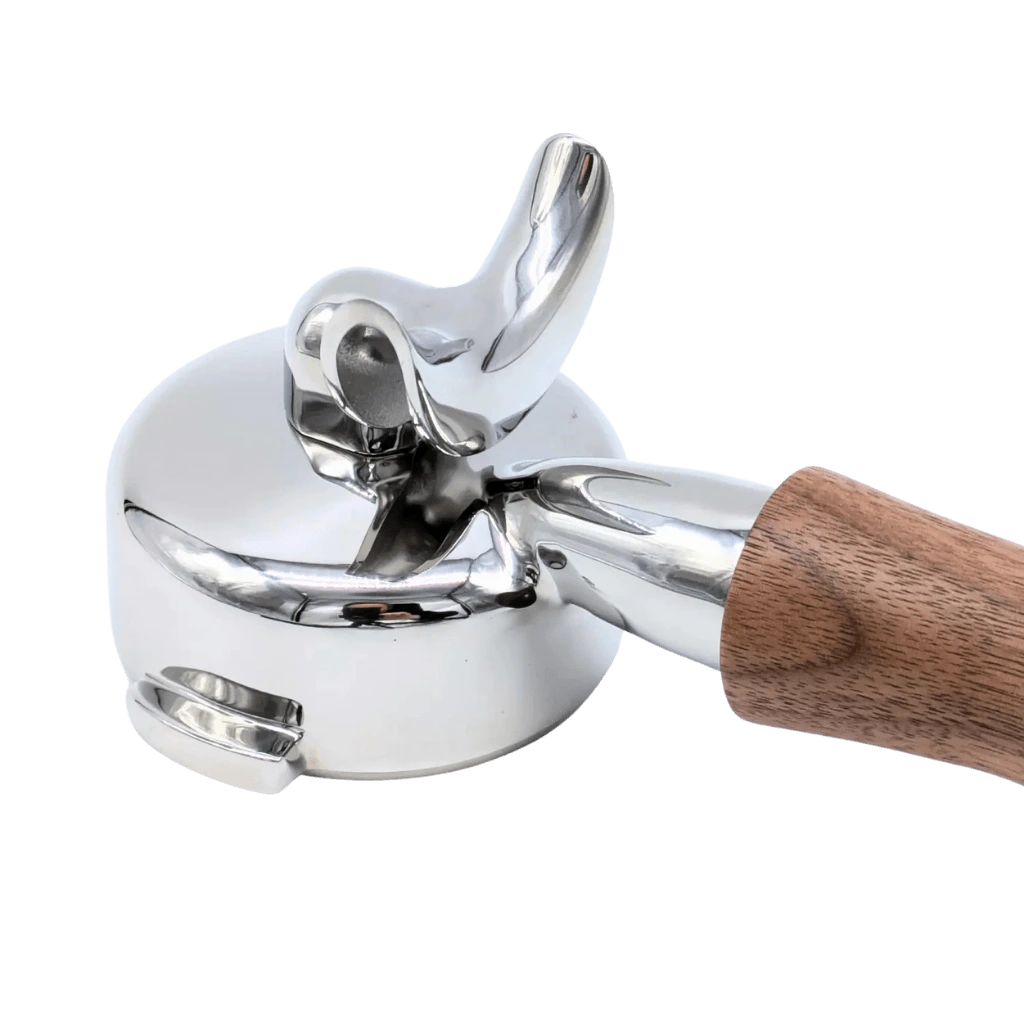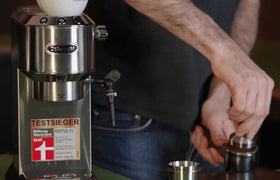Toca. Kaffee mit Impact
Seit 2022 begleiten wir mit dem Toca-Projekt in der Sierra de Zongolica eine junge Bio-Kooperative auf dem Weg zur Selbstbestimmung. 2024 machten die Produzenten große Schritte: Sie bauten ein Microbeneficio, verarbeiten ihre Kaffeekirschen nun zentral und steigern laufend die Qualität. Durch ein Co-Investment wurden wir von Käufern zu Partnern – das Potenzial ist riesig, nachhaltiger Wandel möglich.
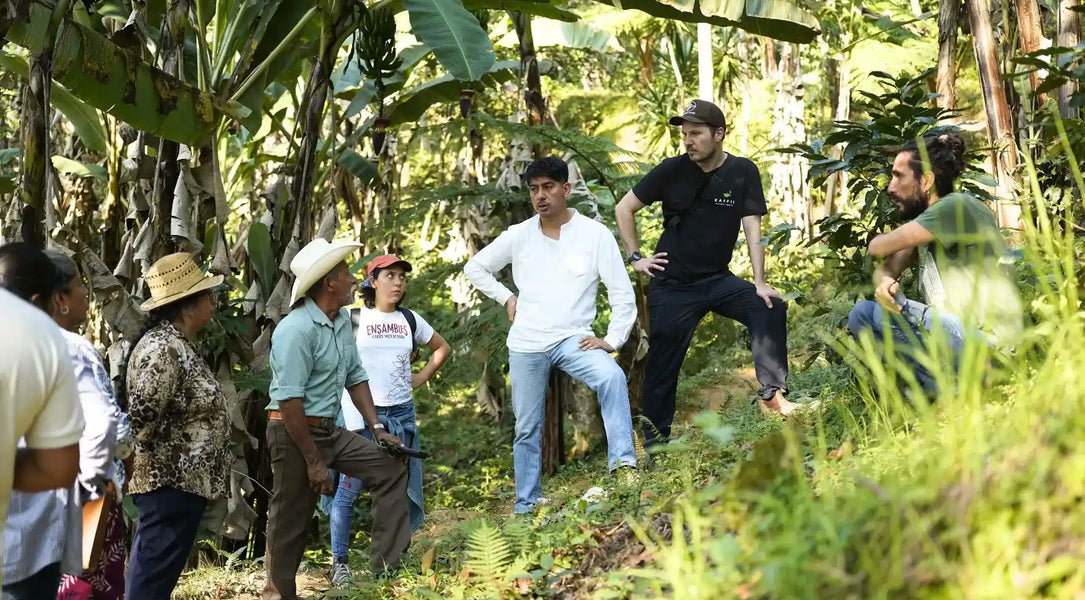
Resilientere Ökosysteme
Um was geht es in diesem Projekt?
Mexiko ist ein besonderes Kaffeeland. Es hat viel Biodiversität bewahrt, und ein Großteil des Kaffees wächst in Wäldern, wie sein ursprünglicher Vorfahre in Afrika.
Während viele Länder auf Monokulturen, Agrochemie und hohe Erträge setzen, produzieren indigene Gemeinschaften Mexikos weiterhin in vielfältigen Polykultursystemen. Sie produzieren weniger, aber bessere Lebensmittel, in nachhaltigen Ökosystemen.
Doch der Klimawandel trifft auch sie: Kaffeerost, extreme Hitze oder Regen verursachen Ernteausfälle und mindern die Qualität. Bisherige Auswege, der Einsatz von Chemie oder der Anbau in höheren Lagen, sind keine langfristige Lösungen. Die einzige Antwort liegt in resilienteren Ökosystemen.
Das Projekt in der Region um Zongolica (Veracruz) ist eine Zusammenarbeit zwischen Nahua-Kaffeeproduzenten, Ensambles Cafes Mexicanos, den Kaffeemacher:innen und der Black Hen Rösterei in Saarbrücken.
Das Ziel ist der Übergang von der konventionellen Landwirtschaft, hin zu regenerativen Praktiken. Die Böden sollen gestärkt, die Temperaturen stabilisiert und das Wasser geschützt werden – ohne synthetische Inputs.
Dabei dient die Ensambles-Farm El Equimite in Coatepec als Labor. Methoden der Permakultur und Biodynamie werden da ausprobiert und dann im Projekt implementiert.
Die Gruppe in Zongolica profitiert von der langjährigen Expertise von Ensambles. Lalo, selbst Produzent und Agronom, ist der Kontakt zwischen Ensambles und Citlal Kaffeen. Er ist Teil der Kooperative und täglich als Ansprechpartner verfügbar.
Gibran Cervantes
"Wir glauben, dass die Lösung in resilienten Ökosystemen liegt. Diese zu erschaffen ist aber keine einfache Aufgabe."

Toca-Projekt
Meilensteine
Was 2017 eine lose Idee in einem Gespräch zwischen Gibran und Philipp war, wurde zu einem Projekt, worauf die Produzenten stolz sind und für sich darin eine Zukunft sehen.
Start der Bio-Zertifizierung 2025
Die Hälfte der Kooperativen-Mitglieder sind bereit für die Bio-Zertifizierung im Frühjahr 2026.
Gründung der Kooperative 2024
Als Gruppe ist Citlal Kaffen nun effizient in der Administration und schafft sich einen erweiterten Marktzugang.
Inbetriebnahme der Wet Mill 2024
Die Kooperative verarbeitet die Kaffeekirschen nun selbst und trocknet auf dem eigenen Patio für die volle Kontrolle.
Philipp Schallberger
"Ich habe noch nie eine Produzentengruppe mit diesem Elan, dieser Besonnenheit und dieser Motivation gesehen."
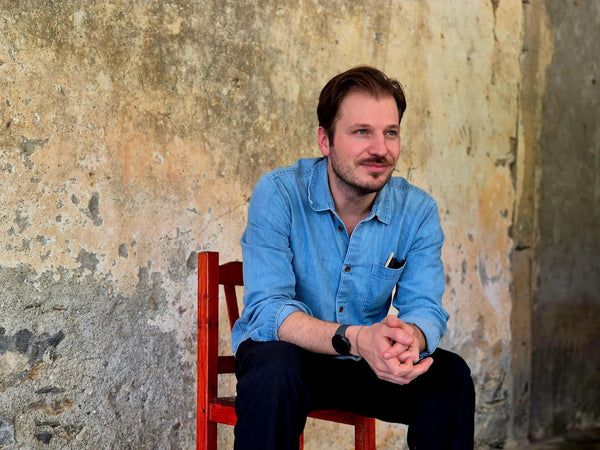
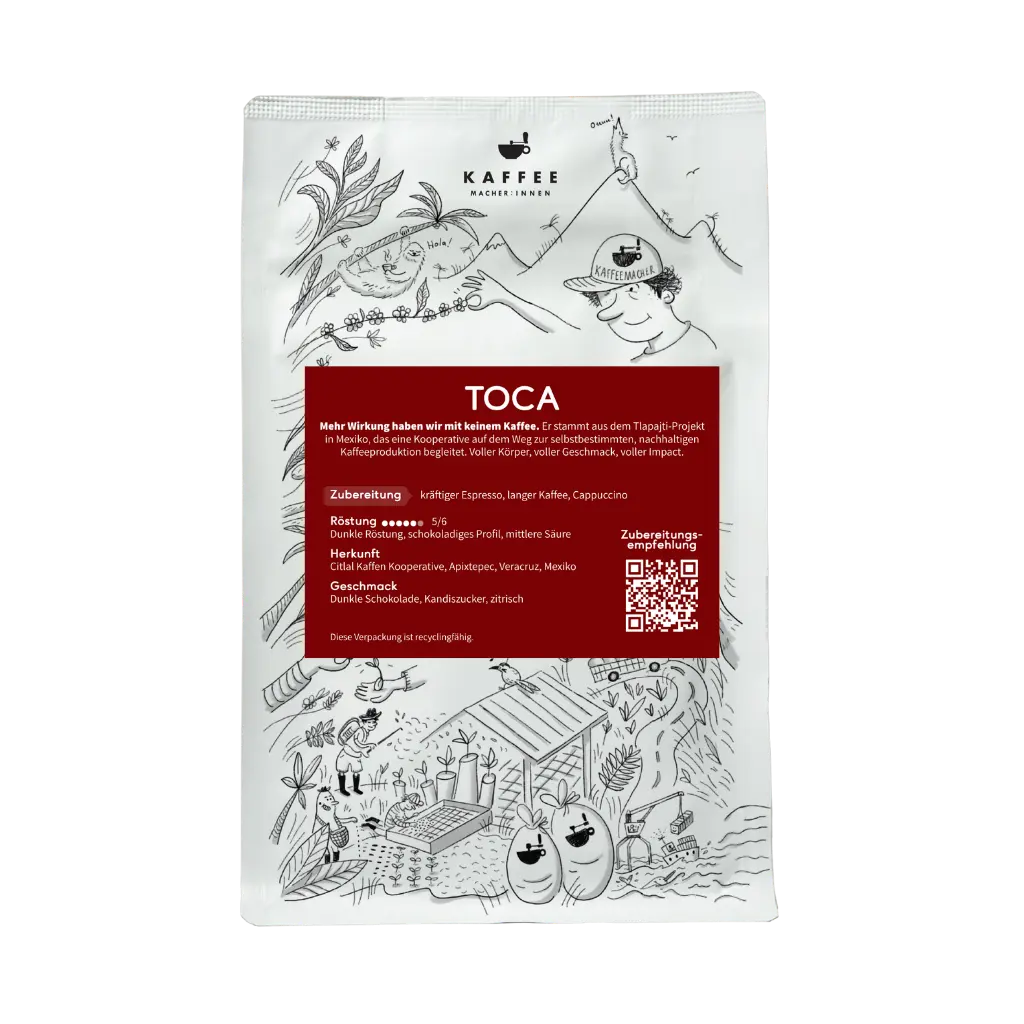

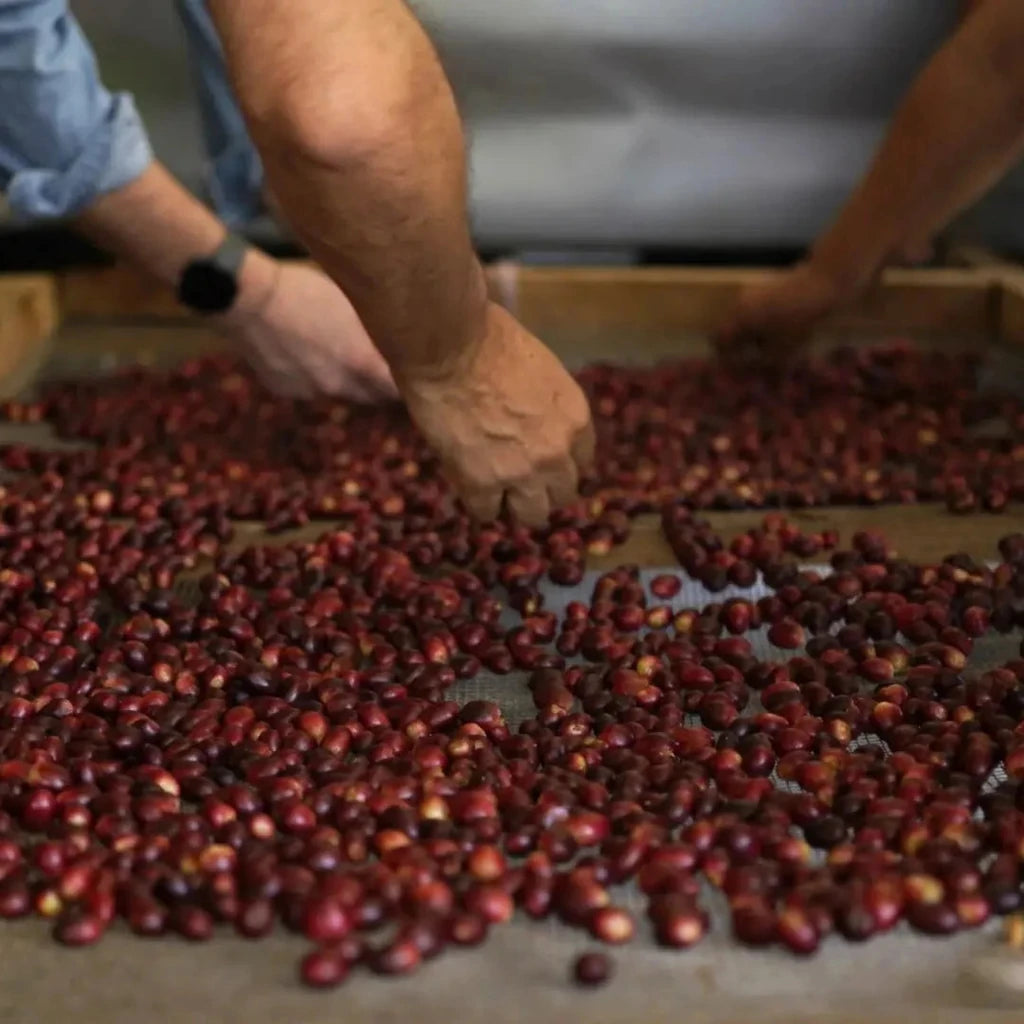
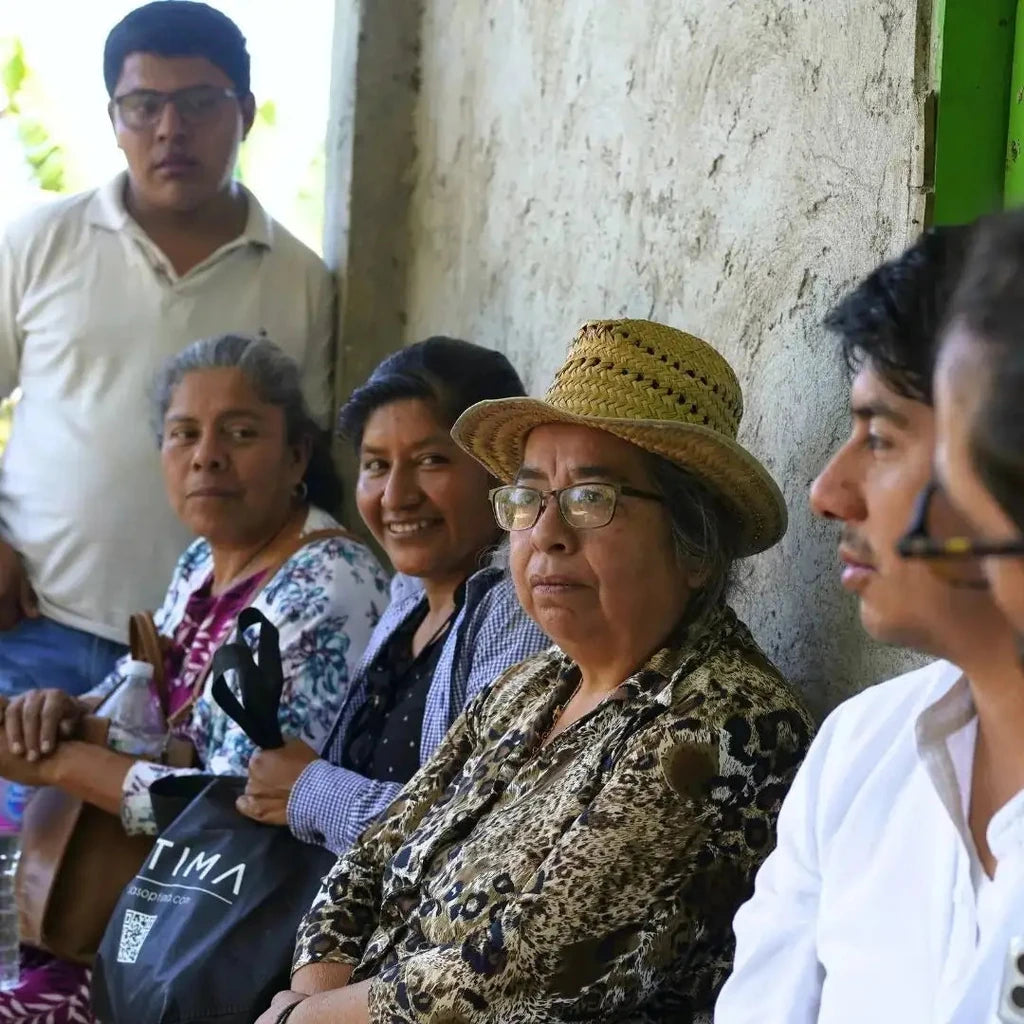
Toca - Espresso and coffee from Mexico
No other coffee has as much impact as this one. It comes from our Tlapajti project in Mexico, which supports a small cooperative on its journey to self-determined, sustainable coffee production . The coffee has a syrupy body, notes of dark chocolate, rock candy, and citrus acidity.
Toca - Green Coffee Information
Taste: Dark chocolate, rock candy, citrus
Origin: Sierra de Zongolica, Veracruz, Mexico
Producer : Citlal Coffee Cooperative
Varieties: Guernica, Typica, Bourbon, Catimores
Post-harvest process: pulped, fermented with water, washed
Arrived at the roastery: annually in August/September
This is how we would prepare the Toca
Tell me more about Toca
The official name of the project in Mexico itself is " Tlapajti " means " those who heal" in the local Nahuátl language spoken in the project region. The name came from a producer within the community itself. She said that they were now healing Mother Earth and therefore were "Tlapajti." In spring 2022, we launched the Tlapajti project in Mexico with Ensambles Cafés Mexicanos.
What is the Toca project about?
First, a cooperative was founded , which was reconstituted in 2024. Now, ensembles are in the process of bringing the producers to organic certification. The first producers achieved organic certification in spring 2025. In 2024, we founded a microbeneficio with the producers, ensembles, and our friends from the Black Hen roastery and set it up as a co-investment . The microbeneficio is a coffee processing facility. The producers built it and now operate it themselves. They can now offer the processing service to other producers in the region, diversifying their activities. The next step is the gradual construction of a small biofactory , where the cooperative will produce its own organic fertilizer.

Why does coffee taste the way it does?
The coffees from the Zongolica region are medium to full-bodied. The area around the Apixtepec community, where the producers live, is often immersed in rain clouds that are pushed inland from the Atlantic. It is often cool, and the coffees ripen slowly. This slow growth gives the coffee its complexity, a delicate citrus acidity , and a high base sweetness . The soft texture comes from the careful selection of the cherries.

How do we roast this coffee?
We roast the Toca as a 30 kg batch in our roaster, so we use the drum to its full potential. With a 15-minute roasting time, this coffee is one of our longest roasts . This way, we emphasize the more classic notes like rock candy. The development time is 15%. We start with a soak , leaving the gas at minimum for 1 minute before increasing the power to 70%. After that, we let the coffee and the roaster do their work, only intervening again at the 10-minute mark and gradually reducing the gas.

How do we describe Toca?

Get coffee details at Beanconqueror
Pickup available at Kaffeemacher:innen
Usually ready in 24 hours

Toca, espresso from Mexico
250 g
Kaffeemacher:innen
Otto-Lilienthal-Straße 13
46539 Dinslaken
Germany



